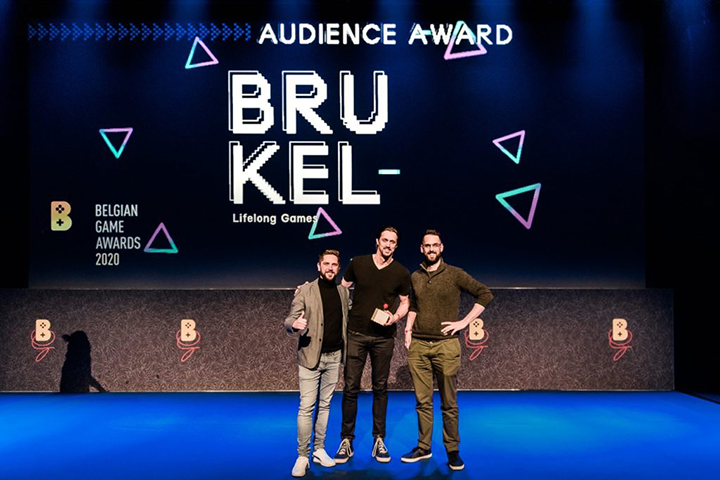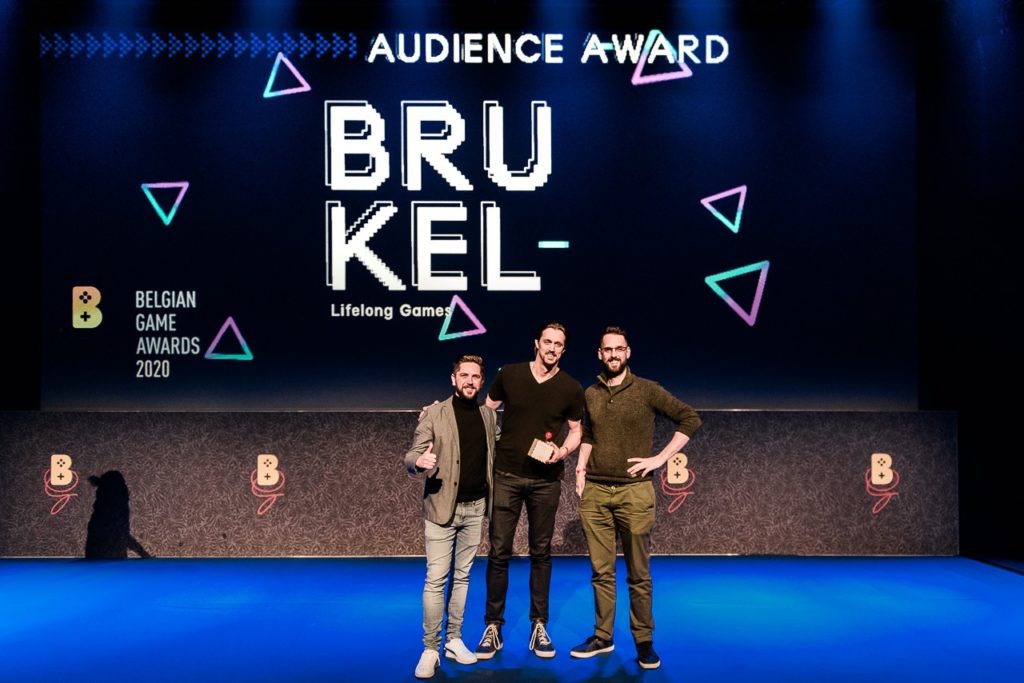Miami Professor Talks About Winning at Belgian Game Awards

Miami University Professor Bob De Schutter poses on stage after winning the Audience Award for Brukel. The Audience Award was one of three awards won by Brukel.
Brukel, a game developed by Miami University professor Bob DeSchutter, won the awards for best serious game, best newcomer and the prize of the public at the Belgian Game Awards on February 22, 2020. The Emerging Technology in Business + Design professor shared his experience of being recognized by his home country.
How did it feel to receive recognition for Brukel from the country where the game is set, which happens to be your home country?
Even if it is a relatively small country, the Belgian game industry is booming with some truly world-class hits in recent years, and the competition are all professional studios. Being able to compete with them and eventually win three awards was definitely not something I would have ever expected. Getting recognition in your home country is always special, but being able to take my family with me to the awards event took it up another level. My mother and brother will never forget the experience.
What is next for Brukel? What is your dream or vision for the game's future?
Currently, I am looking at what platforms I can move Brukel to. It would make a big difference if it could go on a streaming platform as that would eliminate the need of a powerful computer to run the game. The next steps go beyond the game itself. Brukel is a blueprint for "gaminiscing", or the use of video game technology to share personal history. In the long term, the goal is to keep exploring what gaminiscing can mean for all of us.
The game uses your grandmother's story to help players gain a deeper understanding of WWII, how important were emotional connections to the design of the game? Does this mirror how emotional connections are often incorporated into game design?
At a technical level, the game could be a lot better - it's just a matter of having more resources to make a more polished experience. However, the emotional design of Brukel is what makes it stand out and what has earned it 5 awards. Many games offer experiences that invoke strong emotions in their players, but Brukel is unique in the sense that there is no acting. The person that speaks actually lived through what happened.
Games are a great way to teach people about history because it allows them to feel it, or experience it for themselves through gameplay. Do you see the gamification of history growing in the future?
I hope so. As I mentioned earlier, Brukel is part of a bigger initiative in gaminiscing. There are already many examples of history classes using video games these days - such as the Assassin's Creed or the Civilization series. I really did not like history class when I was in school, so I definitely would like to see teachers use games like Brukel to make class more engaging.
What impact do you hope playing Brukel will have on its players?
Brukel helps people see how lucky they are. My generation never really had any real worries. We have food, water, air. Our family is typically safe. Once you are in a war zone, all that goes away. By extension, I hope that Brukel helps people better understand the situation of refugees. I don't think that a lot of people would decide to endure the situation in the same way my grandmother's family did back then.


